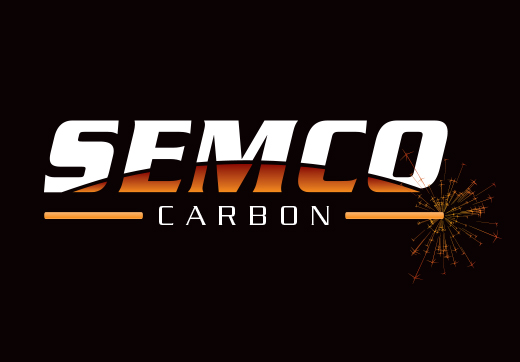
Graphite Grades
The relatively large number of graphite grades available in today's market can cause confusion for the potential consumer in deciding which type of graphite and which graphite grade is appropriate for a specific use.
For this blog post we are going to use the individual graphite grain size as a tool to separate a wide variety of graphite materials. This will help us to categorize most of the graphite grades available in today's market into three broad categories. Why? Because the graphite grain size is one of the most important factors in determining suitability of a particular graphite grade to a particular application.
Fine Grain Graphite 
The very fine structure of these graphite materials generally associated with high density allows them to produce a very precise machined details and very good surface finishes, while also reducing wear in many industrial applications. The designation of fine grain graphite typically refers to materials with individual particles ranging in size from 0.0001'' up to 0.005''. The individual grains of graphite have been milled to the required particle size and blended then isostatically pressed into their raw material shape. While this material has about 5-15% of its volume made up of openings between the individual particles, these opening or porosity are very hard to see because of the very small particles that make up the material. Applications for fine grain graphite materials are found across multiple industries and include crucibles, continuous casting dies, rocket nozzles, electrical brushes, heating elements and fixtures, seals and work-holding jigs to mention just a few.
Medium Grain Graphite

The structure of these materials are ideal for both roughing and finishing operations in many industrial applications. These materials are produced using a alternate manufacturing process which minimizes cost over the isostatic molding process. The designation of medium grain graphite typically refers to materials with individual particles ranging in size from 0.020'' up to 0.062'' which have been compression molded or extruded into their raw material shape. While this material also has about 12-20% of its volume made up of openings between the individual particles, these opening or porosity are easily visible to the human eye because of the particles that make up the material. When speaking about applications, medium grain graphite materials represent a perfectly suited alternative to fine grain graphite materials for medium and large parts or components. They include furnace parts, trays, extrusion guides, heating elements, crucibles, self lubricating bearings etc.
Coarse Grain Graphite
There are many instances where a coarser grained graphite is desirable and adequate for an application. It can provide an economical solution for an ongoing consumable situation, where a lot of raw material is required. As with the prior categories, these materials are available in various sizes bars and blocks.
Typically when discussing a course grain graphite we are talking about an extruded graphite electrode. Individual particle size of this graphite grade of material will range from 0.040'' up to 1/4''+ and have a large amount of porosity in the material. This course grain material is an excellent material for the manufacture of graphite crucibles, large ingot molds and pouring troughs. Because of it's large particle size and open porosity it handles thermal shock exceptionally well and can handle the change in temperature as molten metals contact it's surface. While this material also has about 12-20% of its volume made up of openings between the individual particles, these opening or porosity are extremely visible to the human eye because of the very large particles that make up the material. This material is normally used to make very large parts.
Most graphite grades are available in rods of various sizes as well as in block form. The fine grain graphite grades are typically available in smaller cross sections than the medium grain graphite grades. This is because fine grain graphite grades are very dense and highly engineered products. To maintain the material properties and design characteristics these materials are processed in smaller cross sectional blocks.
If you're looking to buy graphite, ask the experts at Semco Carbon.
